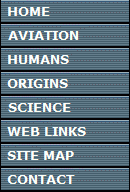



His opponent, a lawyer for the 11 parents suing the school board, dismissed intelligent design as dishonest, unscientific and based entirely on "a meager little analogy that collapses immediately upon inspection."
The conclusion of the six-week trial in Federal District Court on Friday made it clear that two separate but interconnected entities are actually on trial: the Dover school board and the fledgling intelligent design movement.
The board in Dover, a growing town south of Harrisburg, voted last year to read to ninth-grade biology students a four-paragraph statement saying that there are "gaps" in the theory of evolution, and that intelligent design is an alternative they should explore.
At the trial, board members repeatedly said they wanted to "encourage critical thinking." But the parents presented evidence that the board's purpose was religious and that the intelligent design statement was a compromise that the board settled for after learning it could not teach creationism.
Operating on another plane in the case were the dueling scientists, those who argued that intelligent design is an exciting new explanation, versus those who testified that it does not deserve to be called science.
The case, Kitzmiller et al v. Dover, will be decided by Judge John E. Jones III, who says he hopes to issue his ruling before the end of the year, or early January at the latest.
The scientists who advocate intelligent design explained that the complexity of biological organisms and the "purposeful arrangement of parts" are evidence that there is a designer. They said their theory is not religious because they are not claiming the designer is God, since that is untestable.
Scott A. Minnich, an associate professor of microbiology at the University of Idaho, testified for the defense on Thursday and Friday, likening intelligent design to seeing a watch and implicitly knowing that it had a designer - the argument the plaintiffs' lawyer called "a meager little analogy."
In his blunt closing argument, the plaintiffs' lawyer, Eric Rothschild, accused the intelligent design movement of lying, just as he said the school board members had lied when they testified that their purpose for changing the science curriculum had nothing to do with religion.
They lied, he said, when they testified that they did not make or hear religious declarations at board meetings, and when they claimed they did not know that 50 copies of an intelligent design textbook were bought for the school with money collected at a church and funneled through the father of a school board member, Alan Bonsell.
This week, the judge himself grew agitated as he questioned Mr. Bonsell about whether he had lied about the books. Mr. Rothschild reminded the judge of that interchange and said that the board's dishonesty "mimics" the intelligent design movement.
"Its essential religious nature does not change whether it is called 'creation science' or 'intelligent design' or 'sudden emergence theory,' " Mr. Rothschild said. "The shell game has to stop."
A lawyer for the school board, Patrick Gillen, said in closing arguments that while some board members had strong religious beliefs, neither their "primary purpose" nor the effect of their policy was to advance religion.
The trial laid bare the fighting over the biology curriculum that went on between Dover's board and science teachers for more than two years. Science teachers testified that they fought the change at every step, but Mr. Gillen said that the final result "has much more to do with the teachers' input" than the board's.
The campaign to teach creationism alongside evolution was largely driven by two school board members, William Buckingham and Mr. Bonsell, who both testified that they believe the Bible's account of creation is literally true.
Michael R. Baksa, the assistant superintendent of the Dover schools, testified Thursday that when he started his job there in 2002, Mr. Bonsell handed him a copy of "The Myth of Separation," a book by David Barton which argues that the founding fathers intended to create a Christian nation, not one in which church and state were separate.
In 2004, after the board passed its policy on intelligent design, Mr. Baksa received a cynical e-mail message from a social studies teacher saying that since the district was transformed from being "standards driven" to "living word driven," maybe the social studies curriculum should change, too. Mr. Baksa responded: "Feel free to borrow my copy" of the "Myth" book "to get an idea of where the board is coming from."
The big question now is whether the judge will base his ruling more narrowly on the specific actions of the Dover board, or more broadly on the permissibility of teaching intelligent design in public school science classes.
Robert Muise, a lawyer for the board, said his strategy was to present scientists as expert witnesses to prove that there is a complex debate among scientists. "It's going to be difficult for the judge to decide" whether the pro- or the anti-intelligent-design scientists are right, Mr. Muise said.
But Mr. Rothschild said, "This isn't really science against science because that would be two competing arguments based on evidence, research and peer-reviewed articles - and intelligent design has none of those."
November 5, 2005
Update November 9, 2005: All eight members of the Pennsylvania school board that introduced intelligent design as an alternative to evolution in biology class were swept out of office.
MORE (Does God Play Dice?)LAURIE GOODSTEIN,
The New York Times
© 2005 The New York Times Company